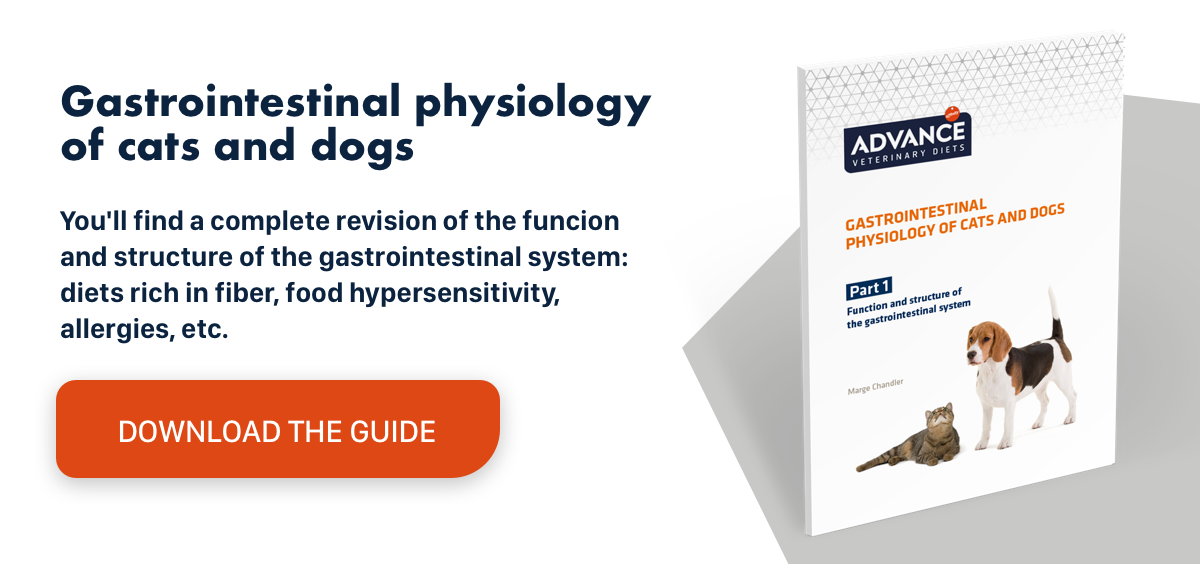Gastroenteritis in dogs: how are fats involved in digestion?
The composition of the dog’s diet is very important when treating gastroenteritis. Enterocytes become atrophied in the intestine and have less capacity for water retention and nutrient absorption, so foods for dogs with diarrhoea must be easy to digest.
[toc:ul CONTENTS]
One of the most problematic food groups for dogs with gastroenteritis to digest are fats, especially long-chain fats. The pancreas and bile are involved in digesting fat, absorption takes place through the enterocyte membrane and the lymph system intervenes before it reaches the bloodstream. This process is much more complicated than that of carbohydrate digestion, for example.
Which type of fat is easier to assimilate in the intestinal process?
Diets for diarrhoea in dogs generally have a low fat content to facilitate digestion, while also providing the body with the energy it needs for its maintenance. However, there are certain types of fat that are more easily digested and which help resolve signs of gastroenteritis in dogs.
This is true of medium-chain triglycerides (MCTs), which are very easily assimilated. MCTs can be found in coconut oil and are mainly composed of fatty acids with between 6 and 12 carbon atoms (C6 [caproic acid] to C12 [lauric acid]).
COCONUT OIL IS RICH IN MEDIUM-CHAIN FATTY ACIDS
.jpg)
Why use medium-chain triglycerides for gastroenteritis in dogs?
The faster nutrients are digested and assimilated, the less burden they place on the digestive system before becoming available for use by the body.
Thanks to their lower molecular weight and smaller size, medium-chain triglycerides (MCTs) present certain advantages in terms of digestion over long-chain triglycerides (LCTs). Such as:
- They stimulate pancreatic lipase function, which hydrolyses MCTs at a faster rate than LCTs.
- They are ionised significantly at physiological pH and are more soluble in aqueous biological fluids.
- They use the portal system rather than the lymph system.
- They oxidise quickly, thus acting as a rapid energy source.
How are medium-chain triglycerides (MCTs) digested?
Due to their small size and low molecular weight, MCTs are hydrolysed by pancreatic lipase more quickly than longer chain fatty acids. They are absorbed into the blood in a soluble form bound to albumin, then quickly transported via the portal system to the liver where they can be used immediately, thus representing a fast energy source. As such, medium-chain triglycerides reach the liver sooner.
In summary, we can say that medium-chain triglycerides are digested, absorbed and transported more quickly and more easily than long-chain triglycerides, offering advantages in the treatment of dogs with gastroenteritis when these processes are impaired.
